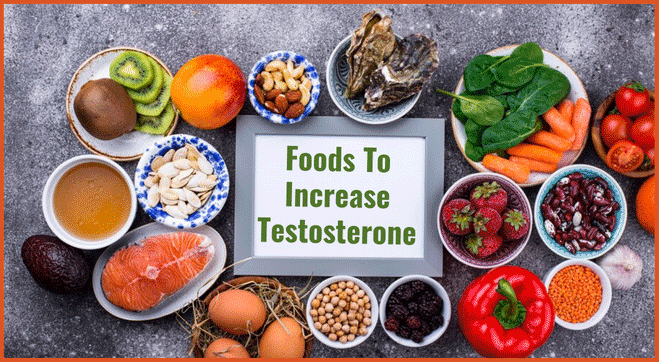What is Testosterone
Testosterone is a hormone that is primarily produced in the testicles and is responsible for the development of male physical characteristics, such as muscle mass, facial and body hair, and a deeper voice. In addition to these physical characteristics, testosterone also plays a role in mood, cognitive function, and sexual health. Testosterone is a hormone that plays a vital role in men’s health, including muscle growth, bone density, and sex drive. However, as men age, their testosterone levels naturally decline, which can lead to a host of health issues. Fortunately, there are proven ways to increase testosterone levels naturally, including lifestyle changes and medical interventions. In this blog, we’ll explore the causes of low testosterone, as well as the most effective ways to increase testosterone levels.
Read More: Testosterone Test: When to Consider a Serum Testosterone Test
Importance of Testosterone in Men’s Health
Testosterone is essential for men’s health and well-being. It plays a vital role in the development of male physical characteristics, including muscle mass and bone density. Additionally, testosterone is important for maintaining a healthy sex drive and fertility. Low testosterone levels can lead to a variety of health issues, including decreased muscle mass, fatigue, depression, and sexual dysfunction.
Causes of Low Testosterone
Age-Related Testosterone Decline
As men age, their testosterone levels naturally decline. This decline typically begins around the age of 30 and continues throughout life. By the age of 70, most men will have significantly lower testosterone levels than they did in their youth.
Chronic Diseases
Chronic illnesses, such as diabetes and obesity, can also contribute to low testosterone levels. These conditions can interfere with the body’s ability to produce and utilize testosterone, leading to a decline in overall levels.
Medications
Certain medications, such as opioids and steroids, can also contribute to low testosterone levels. If you’re taking any medications that you suspect may be affecting your testosterone levels, it’s important to talk to your doctor about your options.
Lifestyle Factors
Lifestyle factors, such as poor diet, lack of exercise, and high-stress levels, can also contribute to low testosterone levels. Making changes in these areas can help to naturally increase testosterone levels.
Read More: Lifestyle And Age Factor – Impact On Fertility
Top Proven Ways to Boost Testosterone Levels
Exercise and Weight Training
Exercise and weight training are two of the most effective ways to increase testosterone levels naturally. Studies have shown that weight training, in particular, can have a significant impact on testosterone levels. Aim to incorporate strength training exercises into your workout routine at least 2-3 times per week.
Sleep and Stress Management
Getting enough sleep and managing stress levels are also important factors in maintaining healthy testosterone levels. Aim for 7-8 hours of sleep each night and try stress-reducing activities, such as yoga or meditation.
Diet and Nutritional Supplements
Diet and nutritional supplements can also play a role in increasing testosterone levels. Foods that are high in zinc and vitamin D, such as oysters and salmon, can help to boost testosterone levels. Additionally, some nutritional supplements, such as DHEA and ashwagandha, have been shown to increase testosterone levels in some men.
Hormone Replacement Therapy
In cases where lifestyle changes and nutritional supplements are not enough to increase testosterone levels, hormone replacement therapy (HRT) may be recommended. HRT involves the use of medications, such as testosterone gels or injections, to replace or supplement natural testosterone levels. However, it’s important to discuss the potential risks and benefits of HRT with a healthcare provider, as it may not be appropriate for everyone.
Other Factors to Consider
Medications
As mentioned earlier, certain medications can contribute to low testosterone levels. It’s important to talk to your doctor about any medications you’re taking that may be affecting your testosterone levels and to explore alternative options if necessary.
Medical Conditions
Medical conditions, such as pituitary gland disorders, can also contribute to low testosterone levels. If you suspect that a medical condition may be affecting your testosterone levels, it’s important to talk to your doctor and seek appropriate treatment.
Lifestyle Changes
In addition to the lifestyle changes mentioned earlier, there are other factors that can affect testosterone levels, such as smoking and excessive alcohol consumption. Quitting smoking and reducing alcohol consumption can also help to increase testosterone levels.
The Importance of Maintaining optimal Testosterone Levels
- Muscle Mass and Strength: Testosterone is a crucial hormone for constructing and maintaining muscular development and strength. Those with higher testosterone levels typically have bigger, stronger muscles than men with lower testosterone levels.
- Bone Density: Testosterone is crucial for preserving a healthy level of bone density. Osteoporosis and other bone-related diseases are more likely to affect men with low testosterone levels.
- Libido and Sexual Function: Testosterone is also essential for libido in men, as is sexual function. Low testosterone levels in men can lead to erectile dysfunction, diminished sex drive (low libido), and other sexual issues.
- Mood and Mental Health: Testosterone also contributes to mental and emotional well-being. Low testosterone levels in men can lead to mood disorders like anxiety and sadness.
- Cardiovascular Health: Testosterone may also be beneficial for the cardiovascular system. According to studies, males who have higher testosterone levels typically have lower levels of body fat, blood pressure, and cholesterol.
- Energy and Stamina: Testosterone is a hormone that affects both energy and stamina. Men with low testosterone levels could feel worn out and have less energy for physical exercise.
- Fertility: Male fertility depends on testosterone, which is a hormone. Men who have low testosterone levels may have less sperm and be less able to have children.
Read More: Modern Alternatives for Infertility
What Makes HealthcareOnTime Your Ideal Choice for Testosterone Test
HealthcareOnTime is an ideal choice for testosterone test because it offers accurate and reliable testing in the convenience of your own home. With easy-to-use testing kits, fast turnaround times, and affordable pricing, HealthcareOnTime makes it simple and accessible to monitor your testosterone levels. Our experienced medical professionals and high-quality laboratory testing equipment ensure accurate and reliable results, and our at-home testing kits make the process easy and convenient. If you’re looking to monitor your testosterone levels, HealthcareOnTime is a reliable and convenient option for testosterone testing.









